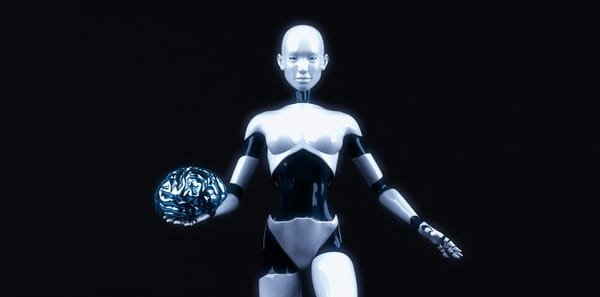Unlock the Potential of AI for Job Descriptions
Job Descriptions have a very significant role in recruitment. A role that is often hidden, and people don’t realize its importance. They are responsible for the outcome of every job advertisement, the quality of hires, and the structure of an organization’s workforce. Through job descriptions, businesses can showcase a role’s skill qualification requirements and responsibilities, which, if done effectively, can attract top candidates who are well-fit for the role and, of course, increase their satisfaction levels because of this transparency.
Traditional Job Descriptions Have their Limitations
From the early stages of recruitment, job descriptions are crafted by the HR department. Handwritten, most times sloppy and using biased language, sometimes unconsciously, sometimes willingly. There are many limitations and downsides that hinder the job posting’s effectiveness and result in lower-quality candidates. Let’s explore them further:
· Generic Profile Postings: Most traditional job descriptions follow a generic style of writing and fail to efficiently showcase the core parts of specific roles.
· Bias and Inclusivity: As we said earlier, most traditional job descriptions contain biased language, either willingly or unconsciously, resulting in a lack of interest from candidates with diverse backgrounds.
· Time-Consuming: The time that a traditional job description needs in order to be crafted is very long. This diverts HR professionals from working on more strategic tasks.
· Limited Information: Another limitation of traditional job descriptions is the limited information that they may provide to the candidates on the role’s contribution to the organization’s goals, not allowing candidates to see the full view of the job.
· Changing Industrial Trends: In the modern industrial landscape, trends tend to change rapidly. As a result, traditional job descriptions fail to capture the changing job requirements and skills needed for each role.
As the market is getting more and more competitive, job descriptions are playing an even more important role in recruitment. Unfortunately, traditional job descriptions are unlikely to produce better results in recruitment due to their many limitations.
Introducing AI in Job Descriptions
To overcome all these limitations of traditional job descriptions, leveraging Artificial Intelligence’s powers for crafting job descriptions is the solution. AI takes job descriptions to another level by overcoming all the challenges of the traditional ones. Its language model structure, efficiency, and up-to-date data help businesses craft job descriptions that attract top-talent candidates and promote inclusivity, allowing businesses to foster a productive workforce that can thrive.
The possibilities that AI offers to job descriptions are countless. As technology keeps advancing, the quality of job descriptions will rise, too. Not to forget that AI is capable of self-evolving, as it supports continuous learning. By gathering insights, it can produce even better and more engaging job descriptions over time.
The Game-Changing Benefits of AI
What are all these game-changing benefits that AI provides to job descriptions that we keep talking about? Of course, every aspect of the traditional job descriptions is upgraded with AI’s assistance. It is able to craft job descriptions with precision on each role’s skills and qualifications needs, as well as the responsibilities they have. Its large, continuously updated database allows it to craft job descriptions that are always updated on the latest market trends. Nonetheless, AI’s language model mitigates potentially biased language from job descriptions. This is a very important benefit of AI’s powers, as it allows businesses to attract candidates with diverse backgrounds and foster an inclusive workforce, as we said earlier.
Another limitation that hinders job description crafting is the huge chunks of time wasted on it. But not to fear, AI is here. In a matter of time, AI can craft each job description in just seconds. If a business is in need of many job descriptions, AI is a lifesaver. Consequently, HR professionals can focus on more strategic tasks with the time saved from not crafting job descriptions the traditional way.
Of course, smart job descriptions don’t only assist businesses but potential candidates, too. AI-generated job descriptions tend to be more engaging for candidates, a fact that leads to improved work engagement and higher employee retention.
In general, AI-generated job descriptions make your business future-ready. The ever-changing industrial landscape calls for action. The competition is vast, and businesses need to take the next step and embrace AI’s powers, which will help them take a leading position in this competitive market.
Overcoming AI-related Challenges
AI’s powers may be sweet, but there are some challenges that businesses need to overcome. Here are some of the most common challenges that businesses may face and ways to overcome them:
· Bias Detection: Many people believe that AI may be using biased language drawn from historical data. While AI’s language model is programmed to mitigate bias, such a thing is possible. That’s why humans are needed to audit every AI-generated job description and train AI models to be inclusive.
· Inaccurate Data: Another challenge of AI-generated job descriptions is the chance of leveraging wrong data. AI may sometimes consider wrong information about a role and craft false wrong descriptions. Chances of something like that happening are very low, and, as always, there has to be a human supervising the final result.
· Technical Integration: New technologies may be scary for most people, and they are afraid of using them. This challenge is easy to overcome. Most AI tools have user-friendly interfaces, allowing everyone to easily use their services. Moreover, when integrating AI tools into your business’s recruitment methods, it is highly suggested to train employees to familiarize themselves with it.
AI and Next-Gen Recruitment
We can expect many more things to follow from integrating AI into organizational recruitment methods. Not just crafting smart job descriptions but to automate the whole process. Assumptions suggest that AI will be able to perform resume screenings, interview candidates, detect their soft skills, and find the most suitable ones for the role. As AI’s powers are unlimited, the expectations are unlimited, too. We can only wait and see what else AI can bring to the recruitment game and what the outcome of the industrial reshaping that it has brought will be.




